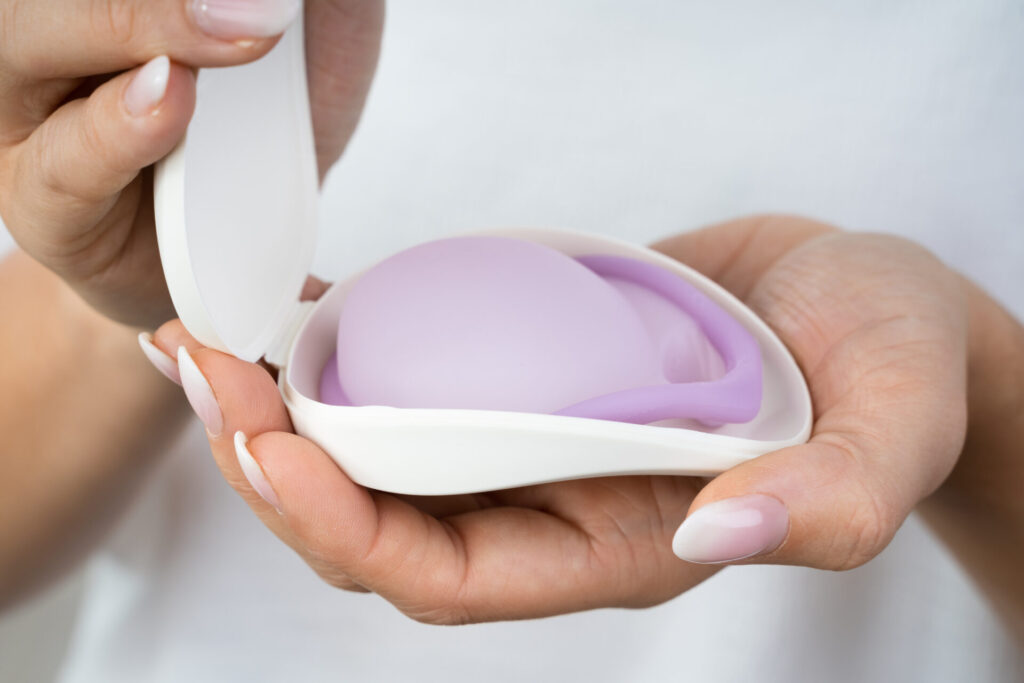Hormonal Birth Control vs. Barrier Methods: Which Work Best?
Birth control is a crucial part of an active sex life if you are not planning to build a family or are not up for surprises like an unexpected pregnancy.
But with so many birth control options out there, you may be asking yourself, “Which one works best for my body or my lifestyle?”
Let’s examine the two types of birth control methods—hormonal and barrier—to help explain how they work and why each might be the right choice for you.
Hormonal Birth Control
Our previous article, Hormonal Birth Control: The Pill, Injections, and Emergency IUDs, provides a deep dive into what hormonal birth control is. But to recap, whether it’s the pill, Depo-Provera injections, a hormonal IUD, or any other hormone-releasing birth control method, this type of birth control interacts with your reproductive system to prevent pregnancy. The synthetic hormones released by these methods stabilize your natural hormone levels, resulting in the following changes:
- No eggs are released from your ovaries.
- Mucus builds up in your cervix to prevent sperm from reaching your uterus.
- The uterine lining becomes thin, making it difficult for a fertilized egg to implant on the uterine wall and begin to grow.
While some hormonal birth control methods may cause all three changes to occur, some may only cause one change to occur. However, any one of them is enough to prevent pregnancy.
How Is Hormonal Birth Control Administered or Maintained?
Some hormonal methods require very little maintenance, while others require daily maintenance. At Women’s Clinic of Atlanta, we offer birth control pills, Depo-Provera injections, and IUDs that vary in how they should be administered or maintained.
- Birth Control Pills – Birth control pills should be taken every single day and at the same time each day for maximum effectiveness. Missing a pill one day or allowing more than 24 hours to pass between pill consumption can result in decreased protection against pregnancy.
- Depo-Provera Injections – One Depo-Provera injection offers three months’ worth of protection against pregnancy. Women who receive injections should maintain their injection schedule every three months for maximum effectiveness. Allowing more than three months to pass between shots can result in decreased protection.
- IUD – Whether you receive a hormonal IUD or copper IUD, this method can offer protection for up to 8 years or more. IUDs must be removed and replaced according to your provider’s recommendations, but they require the lowest maintenance possible with more than 99% protection once placed.
Is Hormonal Birth Control Right for Me?
Every woman is different, and not every birth control method is going to be the best option for everyone. It is important to discuss your options with your doctor, nurse practitioner, or other qualified provider to determine which method you should pursue.
Some women who are at risk of developing blood clots or who have a history of migraines should avoid combination birth control pills, but progestin-only pills, Depo-Provera injections, or an IUD may serve them well. It all depends on your body, your needs, and what your provider recommends.
Barrier Methods of Birth Control
Barrier methods of birth control create barriers around either the penis or cervix to prevent sperm from reaching the uterus. Examples of barrier methods include condoms, cervical caps, and diaphragms.

Condoms
Condoms are single-use forms of barrier protection that are available in various sizes and materials, including latex and plastic, and are also available in male and female forms. Whether you prefer male or female condoms, both can be found in the family planning section of many grocery stores or drug stores. Many family planning clinics provide them as well.
Male Condoms
Male condoms are the most common type of condom and offer 98% protection against pregnancy when used correctly. While condom use seems simple enough, it is possible to mis-wear, misuse, or mishandle them, leading to issues like breakage, slippage, or leakage.
Possible errors include:
- Using an expired condom
- Not using lubrication
- Not allowing space at the tip
- Applying the condom upside down
- Wearing a condom that is either too big or too small
By side-stepping the errors and ensuring proper use, you can expect 98% protection against both pregnancy and the spread of most STIs.
Female Condoms
Female condoms, sometimes called internal condoms, are only slightly less effective at preventing pregnancy, offering 95% effectiveness. Rather than the condom fitting over the penis, female condoms are internally inserted, creating a barrier between sperm and the cervix and uterus. Just like with male condoms, it is possible to misuse a female condom and risk pregnancy.
Possible errors include:
- The penis entering between the vagina and the condom
- The condom getting pushed too far into the vagina
- The condom ripping upon insertion by fingernails, jewelry, or another sharp object
- The penis entering the vagina before proper condom placement
By ensuring proper placement before sex and proper use during sex, female condoms are reliable at preventing pregnancy and preventing the spread of most STIs.
Cervical Caps
Made of silicone and slightly resembling a sailor’s hat, the FemCap is the only FDA-approved cervical cap available in the US, and it is used to shield sperm from reaching the uterus. The FemCap is placed at the opening of the cervix to serve as a barrier between a man’s sperm and a woman’s egg. Effectiveness varies depending on whether you have ever given birth, but they are 86% effective pre-birth if used correctly and about 71% effective following a birth when used correctly.
While condoms do come with bonus protection against certain STIs, FemCaps do not offer such protection. FemCap wearers are still susceptible to contracting infections.
Ways to help ensure your FemCap is as effective as possible is to:
- Use it every time you have sex.
- Apply spermicide to the cap every time you have sex.
- Place it properly inside the vagina at the opening of the cervix, ensuring the cervix is fully covered.
- Use a backup form of protection, such as a condom, along with the cap.
- Leave your cap in place for at least 6 hours following sex.
While other birth control methods are more effective, FemCaps offer women the ability to reuse them, and one cap can last for up to a year. Many women also enjoy not having to deal with the effects of hormone changes to the body that hormonal birth control causes.
FemCaps require a prescription from your provider.

Diaphragms
Similar to a FemCap, a diaphragm is a dome-shaped, silicone cup that is placed at the opening of your cervix to prevent sperm from entering. In ideal conditions, diaphragms are up to 94% effective at blocking sperm and preventing pregnancy. However, reaching that effectiveness requires perfect use every single time. In reality, diaphragms are roughly 83% effective even when used properly.
Again, like FemCaps, diaphragms are only used to prevent pregnancy; they do not have any impact when it comes to preventing STI transmission.
Ways to help ensure your diaphragm is as effective as possible is to:
- Insert it before having sex every single time the mood strikes.
- Apply spermicide along with the cap every single time you have sex.
- Ensure your diaphragm is placed correctly and that your cervix is fully covered.
- Use a backup form of protection, such as a condom, along with the diaphragm.
- Leave your diaphragm in place for at least 6 hours following sex.
Diaphragms may not offer the same level of protection as other birth control methods, but they are reusable and hormone-free, just like FemCaps. In fact, one diaphragm can be used for up to two years before replacement.
Diaphragms require a prescription from your provider.
When it’s time to choose between hormonal birth control or barrier methods, speak with the team at Women’s Clinic of Atlanta.
We offer both prescriptions for hormonal birth control, and we can inform you of your options with barrier methods. It’s wise to know your options and protect yourself from unwanted pregnancies, so let us keep you informed and start you on your birth control journey today.
Schedule a birth control appointment by texting “appointment” to 404-777-4771 today.
Women’s Clinic of Atlanta is HIPAA compliant and AAAHC accredited.
Recent Articles:
